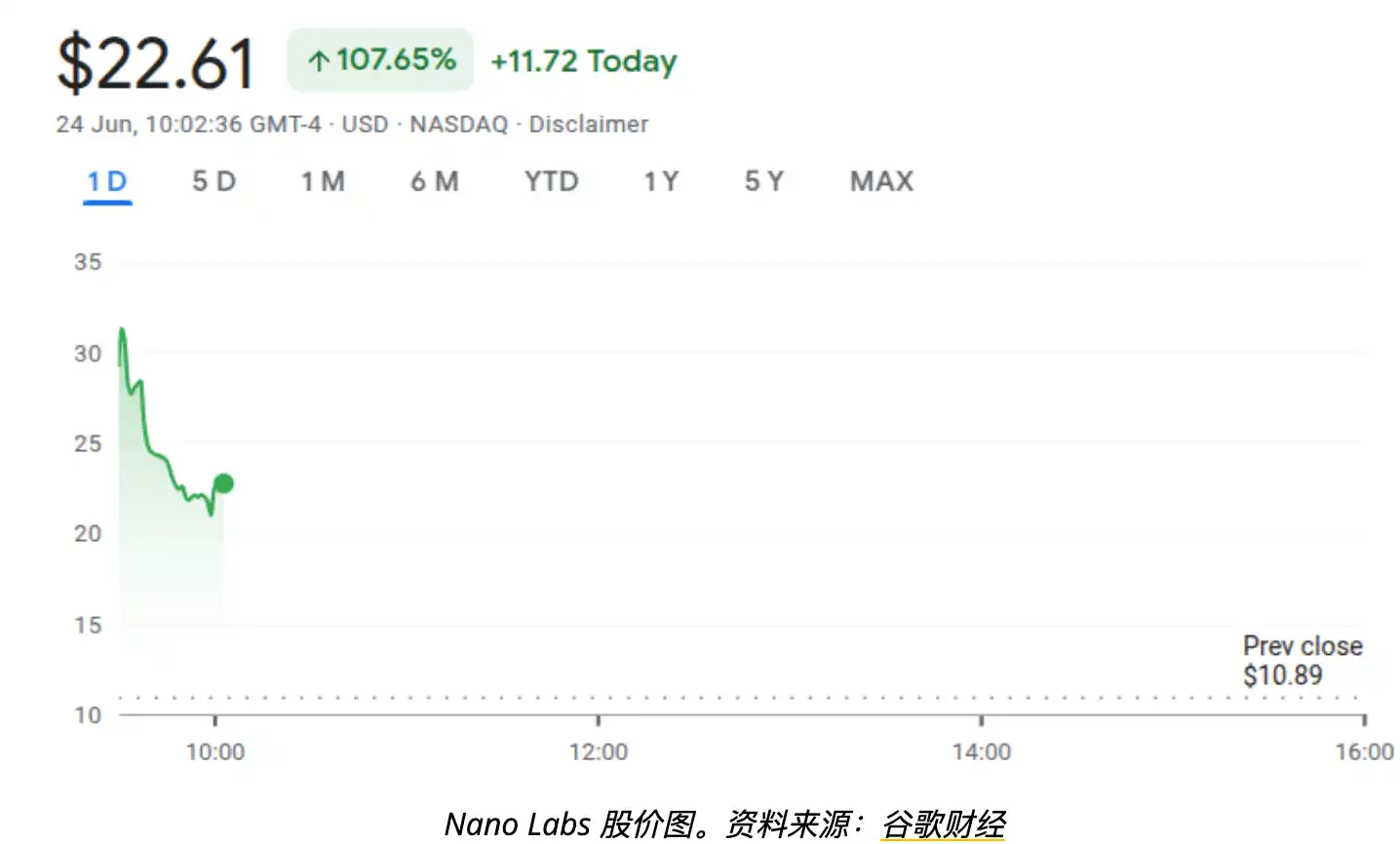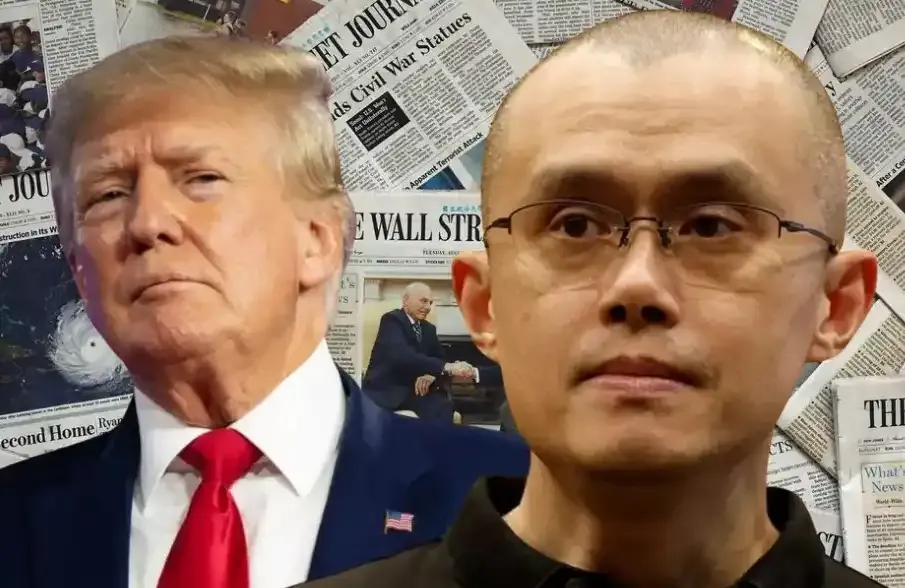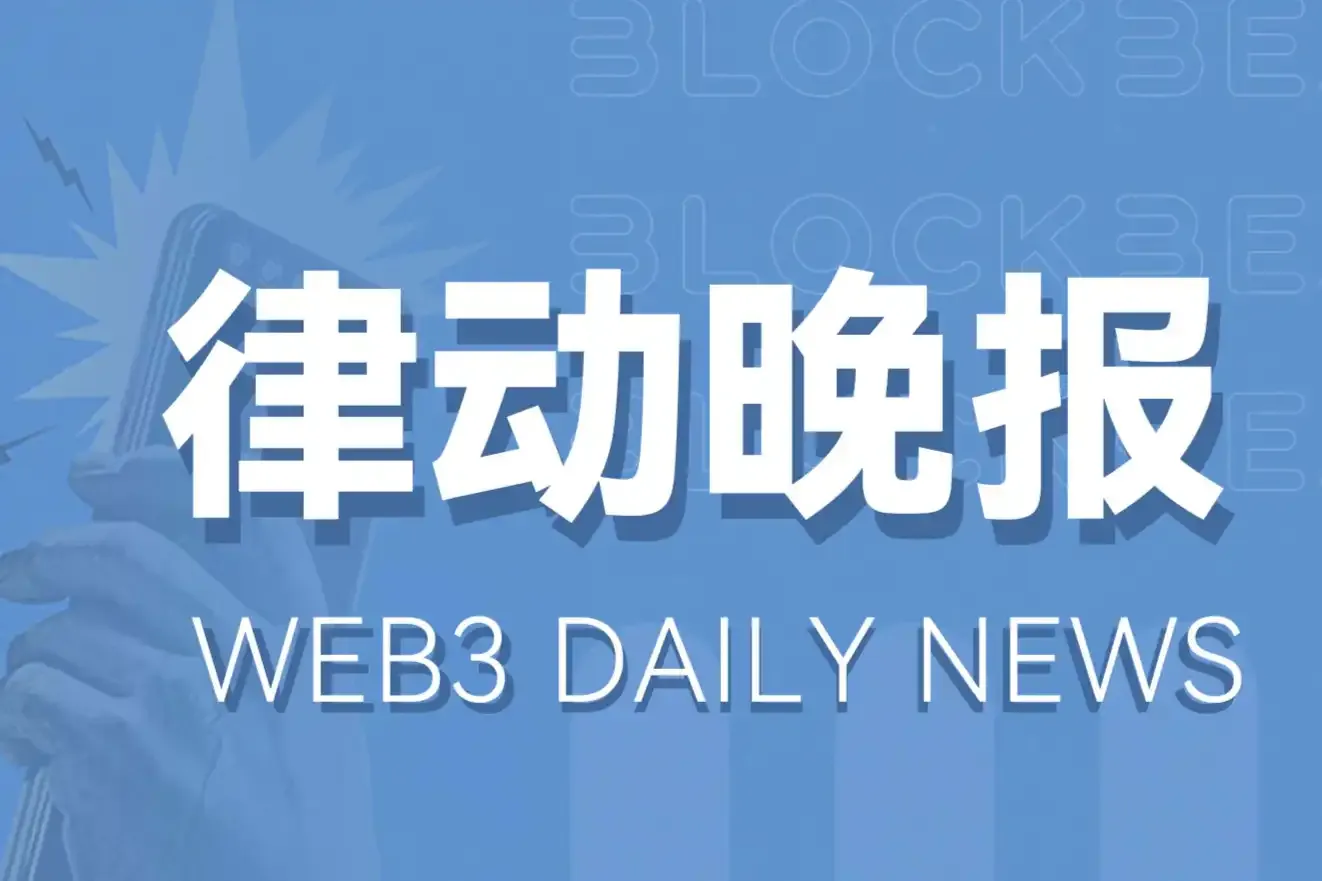On the night of October 23, 2025, Chinese crypto tycoon Zhao Changpeng was announced to have received a presidential pardon from Donald Trump.
According to public information, President Trump had previously expressed sympathy to his advisors regarding Zhao Changpeng's claims of "political persecution" in the United States.
However, just a year earlier, on April 30, 2024, Zhao Changpeng was experiencing the darkest moment of his life: he was stripped naked, subjected to humiliating searches, shown his buttocks, and then locked in a cold cell. His cellmates were muscular men covered in tattoos and with patterns carved on their heads.
In a federal court in Seattle, Zhao Changpeng, dressed in prison garb, admitted to his crimes. This man, known as the "Chinese billionaire," voluntarily chose to pay a fine of $4.3 billion and stated in front of the media, "I choose to voluntarily pay the political fine."
If someone had told him at that time: a year later, not only would you be pardoned by the United States, but you would also be able to return to China, and at this moment, the cold eyes and fists in the Seattle cell, along with that $4.3 billion political fine, would all be wiped clean. He would probably curse in his heart, wondering what kind of dark humor this was.
The signals regarding Zhao Changpeng's pardon began to be released on September 17, 2025. On that day, CZ suddenly updated his Twitter bio, changing it from "ex-@binance" back to "@binance." To some extent, this indicated that he could return to Binance.
At the same time, in October, the two major "compliant trading gateways" in the U.S. almost simultaneously signaled: the crypto listing platform Coinbase and the SEC-regulated mainstream brokerage Robinhood both opened BNB trading, marking the first formal entry of this platform token from Zhao Changpeng's Binance ecosystem into the mainstream U.S. financial system.
White House Press Secretary Karoline Leavitt announced the pardon was effective, emphasizing, "The Biden administration's war on cryptocurrency has come to an end."
Let's rewind to 180 days before the pardon. What was Zhao Changpeng, the Chinese billionaire and founder of Binance, doing just one step away from "political pardon"?
01.
In the spring of 2025, the air in Victoria Harbor was filled with a long-lost liveliness, and a group photo quickly went viral.
In the center of the group photo stood four people: Huobi founder Li Lin, Zhao Changpeng CZ, Sun Yuchen, and Kong Jianping.

In the group photo, on the left, ninth is Huobi founder Li Lin, tenth is Binance founder Zhao Changpeng CZ, and sixth is Kong Jianping.
To outsiders, this was just a photo of several big shots in the crypto circle, but to those in the know, this scene itself was a signal.
Eight years ago, China completely banned ICOs and trading platforms, and Binance hurriedly went overseas, making Zhao Changpeng "the least likely person to return to the country." Eight years later, he reappeared in this group photo. This was his opening statement to re-establish connections with local capital and institutions.
The host of this gathering, Li Lin, was once one of the top three trading platforms in the world, the founder of Huobi. Three years ago, he sold this company he founded to Sun Yuchen, who was also at the dinner. After this dinner, the person who had the most contact with CZ was Kong Jianping, standing beside them.
Kong Jianping was once the co-chairman of the board of directors of the well-known mining machine manufacturer Canaan Creative. In 2020, he founded Nano Labs and served as chairman, while also being a director of Hong Kong Cyberport and a member of the Hong Kong "Task Force on Promoting Web3 Development." He was even appointed by the Secretary for Financial Services and the Treasury of the Hong Kong SAR government as a member of the tribunal.
Two months after this gathering, Kong Jianping announced a high-profile plan to create a $1 billion BNB treasury, aiming to accumulate 5%-10% of the circulating supply and package Binance's platform token BNB into a "U.S. listed company."
CZ personally retweeted this on Twitter, igniting market sentiment, and the stock price soared, with intraday gains reaching as high as 107%+. Zhao Changpeng emphasized that he and his associated entities "did not participate in this round of financing." However, they "still very much support" it.
After that, Kong Jianping's presence could be seen behind most of Zhao Changpeng's public speaking events in Hong Kong.

Four months later, when Zhao Changpeng returned to Hong Kong for the second time, he was no longer just a "mysterious guest" at Binance events but came with a clear agenda: on one hand, he publicly announced a partnership with Huaxing Capital before the event; on the other hand, he finalized a connection with OSL after the event. This back-and-forth marked the gradual clarity of his landing path in Hong Kong.
The story of Huaxing Capital shares many commonalities with Binance, existing in a blend of glamour and detachment. The founder, Bao Fan, was once the most influential figure in the investment banking circle, having facilitated century mergers like Didi and Kuaidi, Meituan and Dianping, and invested in the largest listed stablecoin company, Circle.
However, in February 2023, Bao Fan suddenly "disappeared," making Huaxing a sensitive name in the capital market. The investment banking business was still operational, but due to the founder being "in custody," it remained in a detached position for a long time: traditional finance dared not fully trust it, while emerging internet capital felt it was running out of steam.
At the end of August 2025, Binance announced its partnership with Huaxing Capital.
Before the cooperation between Huaxing Capital and BNB was realized, a subtle coincidence occurred. On August 8, 2025, Caixin disclosed that Huaxing founder Bao Fan had been "released," ending a two-and-a-half-year disappearance investigation; just three weeks later, Huaxing announced a $100 million investment in BNB and partnered with Zhao Changpeng's family fund YZi Labs to launch a compliance fund. Bao Fan's wife, Xu Yanqing, who is also the current chairperson of Huaxing's board, participated as a speaker in the BNB ecosystem's fifth anniversary event.
In addition, Zhao Changpeng and Huaxing also implemented a seemingly inconspicuous measure: promoting the compliant listing of BNB on the Hong Kong Securities and Futures Commission licensed virtual asset trading platform.

Just 12 days later, OSL, as Hong Kong's first licensed trading platform, announced that Binance's platform token BNB had become the fifth approved crypto asset for trading on a licensed trading platform in Hong Kong.
As one of the earliest licensed trading platforms in Hong Kong, OSL is backed by its parent company BC Technology, a licensed fintech group listed on the Hong Kong Stock Exchange. OSL itself obtained one of the first virtual asset trading platform licenses in Hong Kong and also has custody and brokerage services, possessing a network that directly connects local brokerages, ETF custodians, and institutional distributors.
This company is considered particularly special in the industry due to its early management team's "financial background." Its largest shareholder, holding 25.43%, originally came from a traditional brokerage background and later entered crypto, also being the founder of the trading platform Bitget, thoroughly combining compliance with the capital market.
Zhao Changpeng's return to the country was written between these coincidences and operations, piecing together the puzzle with capital and politics.
In the 180 days leading up to the pardon, Zhao Changpeng's seemingly loose actions were actually all serving the same goal: first, to rebuild the legitimacy of CZ's return to China.
02.
When Zhao Changpeng spoke at an event at the University of Hong Kong, he said, "When I left the mainland four years ago, I thought I would never return to the core stage of the Chinese-speaking world. But today, standing in Hong Kong, I clearly know that the previous wandering was just a prelude; the real story is just beginning."
Some people think this is just a platitude, but once they know the story behind it, they may find it to be heartfelt.
In July 2017, Binance started in Shanghai. Two months later, the country completely banned ICOs and trading platforms, forcing CZ to evacuate with a team of more than thirty people. In six weeks, they moved data from Alibaba Cloud to AWS and arranged visas for engineers who had never been abroad, like a makeshift expedition team, arriving in Tokyo.
At that time, Japan seemed to be an ideal safe haven, as the government had recognized virtual currency as legal. So Binance rented an office, and about ten people sat there, calling it the "global headquarters."
The bull market of 2017 surged, with Bitcoin rising from $3,000 to $19,000. Binance topped global trading volume in just five months. During that time, they hardly slept, and registration numbers skyrocketed to the point of temporarily halting new accounts.
But the wind quickly turned. In early 2018, scammers used fake Google ads to phish, stealing investors' Binance accounts and funds. The Japanese Financial Services Agency suddenly tightened policies, directly warning Binance about its unlicensed operations in Japan in March. The cold face of regulation was scarier than hackers, and CZ packed his bags again, retreating from Tokyo.
After retreating from Tokyo, CZ placed his bets on Malta in the Mediterranean. In 2018, Prime Minister Muscat proclaimed the slogan "Blockchain Island." Thus, Zhao Changpeng collaborated with the local government to announce that Binance's global headquarters would be here, and within three months, the team expanded to employees from 39 countries. But two years later, the Malta Financial Services Authority issued a cold statement: Binance was never registered.
This back-and-forth, with Japan's cold shoulder and Malta's reversal, forced CZ to announce that Binance would no longer seek a headquarters.
In September 2021, this "no headquarters model" began to play a special role in regulation. In 2021, a competitor trading platform sued Binance in the U.S., and a class-action lawsuit brought Binance, CoinMarketCap, and Zhao Changpeng to court.
The divine moment arrived: the subpoena could find the company, but "no headquarters" meant no address, and in the end, they could only pursue the founder. So the plaintiff's lawyer hired a private investigator with a background in the Marine Corps to track down CZ's whereabouts. The investigation spanned Asia, Europe, and the Middle East, combing through flight data, business registrations, and social media. Months passed, and still, there was nothing.
Until the investigator left a line in the report: "We made great efforts to track Zhao Changpeng, but his whereabouts were almost impossible to detect."
Even the lawyer eventually suggested sending the subpoena directly through Twitter, as CZ was active there every day. Of course, this was rejected by the judge.
Wandering was just a prelude; headquarters could disappear, passports could be changed, but soon, Zhao Changpeng would face another more challenging identity test—when Americans pointed their fingers at his Chinese heritage, what answer could Zhao Changpeng provide?
03.
At the power game table of the world, the first thing revealed is one's background, followed by the passport, while ability often becomes just a final talking point.
From walking out of a U.S. prison to receiving a presidential pardon, along this journey, Zhao Changpeng's contributions to so-called "compliance" have always been "more than just" compliance.
At the end of 2022, the second-largest U.S. trading platform, FTX, collapsed, leading to a massive funding gap. Just seven months later, the U.S. SEC began suing Binance and CZ for illegal operations, and by the end of the year, issued a staggering $4.3 billion fine.
Outside the courtroom, the power games in Washington never ceased. The Democratic-led regulatory storm shaped CZ into a perfect target: a Chinese entrepreneur controlling half of the crypto world, yet accused of violating anti-money laundering laws and sanctions regulations. In the prosecutor's indictment, Binance was accused of "serving illegal activities," and CZ's background—being born in China and having lived in Shanghai during his early years—became the cheapest and most effective entry point for attacks.
On November 24, 2023, a hot post on the overseas social media platform Reddit surged to the top of the crypto section, discussing whether Binance could really bear the $4.3 billion fine, comparing it to FTX's $6.8 billion hole. Many American netizens even suggested that the government was "squeezing blood" from Binance to fill the gaps in the U.S. crypto industry.
However, money can only solve financial problems; the doubts about his background always shadowed him.
U.S. Congresswoman Stacey Plaskett bluntly stated during a hearing, "Although he is a Canadian citizen, he is Chinese."

In a Forbes article, Zhao Changpeng remarked, "My Chinese identity has been brought up again, as if it matters." He had previously been a target of discrimination due to his Chinese heritage, especially when some tried to link him to relevant Asian governments.
In the spring of 2024, Zhao Changpeng paid the $4.3 billion fine and donned a prison uniform as he entered a U.S. prison in Seattle to serve his sentence. This period, which he referred to as "the hardest time of my life," did not fully bring about a political identity reset.
The real turning point came with the return of Republican Trump to the White House, which brought a "general amnesty" to the crypto industry.
The $4.3 billion fine Zhao paid to the Democrats became a sunk cost of political sacrifice. He had to start betting anew.
In March 2025, Binance announced a $2 billion investment from the Abu Dhabi sovereign fund MGX. The proportions, governance rights, and use of funds were not disclosed, but what was truly noteworthy was the settlement method. It was not in U.S. dollars but in the USD1 stablecoin—backed by World Liberty, closely related to the Trump family.
Soon after, Zhao Changpeng posted a photo with Zach Witkoff on social media. Zach is not only a co-founder of USD1 but also an ally of the Trump camp. His father, Steve Witkoff, served as a special envoy for Middle Eastern affairs in the Trump administration.
This gave a financial investment more political significance, with Middle Eastern capital entering the scene and the Trump family's stablecoin making its debut, while CZ gained a new layer of protection.
Just two weeks later, the Trump family's stablecoin USD1 announced its official launch on the Binance ecosystem BNB Chain.
The slogan for USD1 was simple: "America's digital dollar." CZ's first action was to integrate it into his base. BNB Chain was already a bustling marketplace, with lending, DEX, and memes all available. Once USD1 was listed, lending pools went live, cross-chain tools were integrated, and the Trump family fund even boosted Binance's own Four.meme project’s meme coin.
In fact, nearly 90% of the total issuance of the USD1 stablecoin was already circulating on the BNB Chain.
On the surface, this was a product collaboration; in reality, everyone envied this hard-to-obtain political endorsement. Nevertheless, Zhao Changpeng formally applied for a presidential pardon from Trump in April of this year, and it took a full five months to receive the official document stating "pardon approved."
Bob Dylan once sang in his famous song "Blowin' in the Wind":
How many roads must a man walk down
Before you can call him a man.
For Binance, this question is equally challenging: "How many roads must be traveled, how many barriers must be crossed, to truly stand on the stage of compliance?"
04.
For Zhao Changpeng, this is a personal tribulation; for Chinese entrepreneurs, it is a collective dilemma. The nationality page of a passport can be changed, but in political narratives, Chinese identity has become an indelible label in the game.
This label brings structural vulnerability. Business competition is a contest within a legitimate framework, but war is different; opponents rarely consider any rules or restrictions and will stop at nothing to achieve their strategic goals.
Zhao Changpeng once said, "If there are listeners, I might be willing to privately mentor a few emerging entrepreneurs. Even if for no other reason, I can at least tell them what not to do."
After all, for Chinese entrepreneurs, "compliance" is not just compliance; it often signifies a higher threshold of "identity redemption."
On the surface, this is a friction of systems behind business competition; at a deeper level, it reflects the projection of identity politics in the global market. A German entrepreneur, a Japanese entrepreneur, or a Korean entrepreneur, even when facing regulation, is rarely magnified for their "national background." But when the subject is Chinese, identity naturally carries geopolitical connotations, as if every expansion of the enterprise implicitly contains the will of the state.
Shein's CEO Xu Yangtian obtained a Singapore passport but could not ensure Shein's smooth listing; TikTok's Singaporean CEO Shou Zi Chew could not stop Congress from continuously questioning "Chinese identity"; Temu moved its headquarters to Ireland but could not escape Washington's accusations of "forced labor."
Because of this, there is always a disconnection between the "passport" and "identity" of Chinese entrepreneurs. Passports can be changed repeatedly: Canada, Singapore, Grenada… but "identity" is a deeper imprint, written on their faces, engraved in their experiences, and difficult to erase. It forces these entrepreneurs to pay extra costs on the road to cross-border expansion—more explanations, more scrutiny, and even more compromises.
Some say this is an inevitability as globalization reaches deeper waters: capital can flow freely, but human identity cannot easily cross political barriers. The successes and predicaments of Chinese entrepreneurs are a concentrated reflection of this contradiction.
On one hand, they prove the hard work of the Chinese community; on the other, they are constantly reminded that no matter how large the market or how strong the capital, they always find themselves in a position that requires extra proof of "being harmless."
This may be a shared hidden pain for Zhao Changpeng and others: they can change company structures, embrace different markets, but they must learn to seek refuge within the different power dynamics in the U.S., Europe, and the Middle East; they must accept that passports can become tools, while identity is another inescapable fate.
Immediately after receiving the pardon, Zhao Changpeng tweeted: "Thank you, President Trump, for the pardon. I will do everything I can to help America become the capital of cryptocurrency."
Perhaps for Chinese entrepreneurs, this game about "identity" is far from over.
- END -
References:
[1]. In-depth interview with Rug Radio's Farokh Sarmad and CZ, discussing prison experiences.
[2]. Hong Kong SAR Government Gazette.
[3]. Plaskett uses "anti-Asian discrimination" against Canadian crypto CEO in congressional hearing, Federal Newswire Report.





免责声明:本文章仅代表作者个人观点,不代表本平台的立场和观点。本文章仅供信息分享,不构成对任何人的任何投资建议。用户与作者之间的任何争议,与本平台无关。如网页中刊载的文章或图片涉及侵权,请提供相关的权利证明和身份证明发送邮件到support@aicoin.com,本平台相关工作人员将会进行核查。



